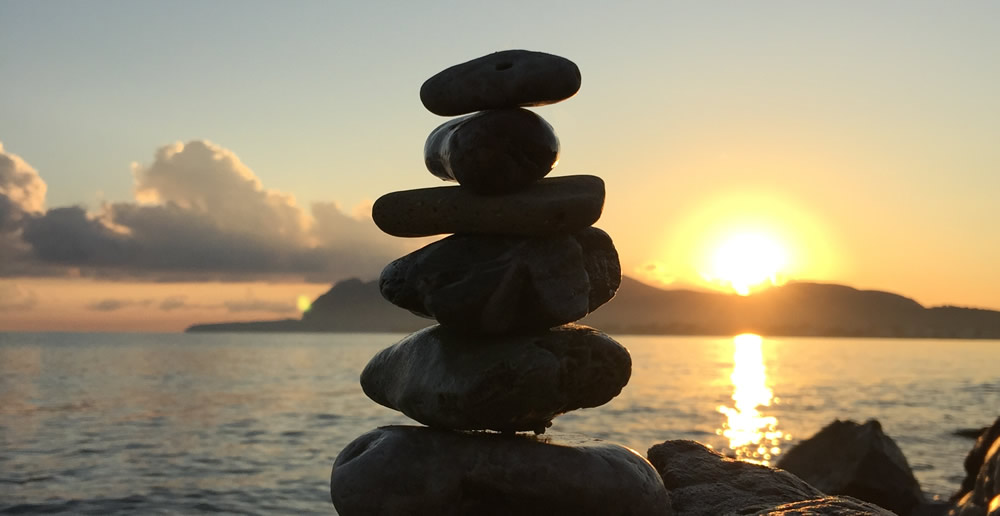
Cancer is a complex and cruel illness, and the therapy is as complex and difficult. It’s also a painfully common illness. Every other day, there are articles in the news about those who have to deal with it, about new experimental cures, about the survivors – and those who don’t survive.
I knew that for women, breast cancer is the most common form of cancer. What I couldn’t imagine, though, is that I would ever get such a diagnosis. Even my doc didn’t believe it at first: too young, not the typical indication. But it happened. Out of the blue. And it shook up my whole life, especially when I learned that I had to go through chemotherapy.
To process the mix of emotions, information, doctor dates and treatment days, I started journaling. Also, I read memoirs of others, and books and articles with background information and advice how to deal with the diagnosis and the therapy.
Sharing the Experience + Advice
Since then, friends and relatives and colleagues have started to contact me when they had to face a cancer diagnosis themselves, or someone close to them received the troubling news.
Which now brought the idea to go through my journal notes again, and write a series of articles with tips that help to get through cancer treatments – especially chemotherapy, and to deal with the fear and frustration that is caused by cancer.
The motivation for both is to share my experience and especially all the advice I received and collected, to help others to get through the time of illness, and to recover and find a new balance afterwards.
In a perfect world, I would have it all typed out nicely – but then, in a perfect world, there wouldn’t be cancer and all the messy topics that come with it.
So I decided to go ahead like I did in the time of treatment: start, and then proceed on a day-by-day basis. Below I added a note from my journal, it also includes some initial reflections that helped me to stay positive. And here’s the brief first list of advice:

5 Helpful Tips to Get You Through Cancer Treatment
Step out
Try to stay active. It is tempting to simply roll up in bed and be overcome by fear and frustration. That would be okay if the therapy was like the one for a flu: 2 weeks in bed, a package of medicine, and then you’re fine again. Only that cancer doesn’t work that way. So don’t let it pull you into resignation. Get up, and go for a walk. Go to a place you enjoy. Go to a playground, and sit on a swing. Do something for you, outside, every day, if possible, and even if it is just a short walk. This helps your mood, your appetite, your body and your immune system.
Share it
Don’t make it a secret. It is tough enough to deal with the diagnosis and therapy if you receive all the support you can get. Don’t let cancer isolate you and cut you off. There is nothing to be ashamed about. And if you don’t let your family and friends know, they can’t really help. Also, connect with other patients. It helps to be able to share the situation with someone who is in the same boat. And it is a comfort to realize that others have the same fears and deal with the same, sometimes odd, obstacles.
Learn to relax
It will take time to get through the therapy and to recover. Unfortunately, there will be many situations – from doc dates to waiting for results, from days when you feel not so well to waves of fear – when you feel pressured and tense. Which is a difficult state to be in for longer time. So try to learn to relax. There are a number of simple techniques that can help, starting with some simple breathing exercises. Just google “relaxation techniques”. Try a couple, and then practice some of them, so that you can turn to them when you wake in the night and can’t get back to sleep, when you are worried or feel unwell, or when you wait for a difficult doc date.
Look for things that help
Think of the time of illness like a long mountain road, or like a difficult expedition. And now start to look for things that might help you along the way. Everyone is different, and the trick is to find “your things” – the books, the activities, the equipment, the food – that works well for you. Experiment, try different things, look for an activity you can do at home that gives you a feeling of doing something meaningful. Something you look forward to – maybe you want to start journaling, or crafting, or painting. Look for courses that are on offer in the hospital, and try them. Or check out courses in your local community. It is good to have something to do beyond being a patient who is waiting for the next doc date.
Don’t surrender your life to the illness
The sum of this brief list probably is: Don’t give up. This is still your life. Find spots in each day that feel like it. Take your space, for yourself. And even though this is a difficult time, try to see the larger picture: that after all, this is a long road, but all those doc dates and all those days of slowly proceeding through schedules are there to help, to bring you back to health.
**

Journal note 23. November:
To live each day, or: “We’re sorry, it’s chemotherapy…”
This week brought a red sunrise. And together with it, this quote from a name-sister of mine, Dorothy Day. I didn’t know about her before.
I have learned to live each day as it comes,
and not to borrow trouble by dreading tomorrow.
It is the dark menace of the future
that makes cowards of us.
– Dorothy Day
The week also brought difficult news: the hospital called, with the the results of the extra test that was made to figure out if in my case, after the operation, it would be enough to use radiation as treatment. But unfortunately, this won’t be enough – the test results strongly suggest to do chemotherapy. Here’s the sum of it:
“The cancer has a high risk of recurrence, and the benefits of chemotherapy are likely to be greater than the risks of side effects.”
I somehow had hoped and thought that it wouldn’t turn out like that, that the test would bring a “no chemotherapy” suggestion. On Thursday, I went there to learn about the details. The main aim of chemotherapy is to actively catch possibly remaining cancer cells, and to lower the risk of recurrence as far as possible. Still, it will mean a painful time of going through health troubles to avoid health troubles.
So altogether, it is helping to create a safer ground to live on afterwards. And the medicine and the way the treatment works has developed a lot. But then, no one can tell how each individual person will react to chemotherapy. For some the side effects are stronger, for others less so. They will do as much as they can to make the side effect tolerable. Still, it’s scary, and hard to grasp.
One thing that is sure: I will lose my hair. But it will grow back after some months. So this also will mean that I turn into a different me, for a while. I will try to see it as an experience of letting go. Letting go of the normal state of things. Letting go of my hair. Letting go of the assumption that these things happen, you read about them in the news, but it’s still something that happens in another place. Not here. Not to yourself…
I am just so glad now that the docs gave their OK for the holiday we had booked before, so we don’t have to cancel. Chemotherapy is a longterm treatment, they will start when I am back. It’s good I know about it now, before the island, so that I can mentally prepare myself for it. And the island, time, it will be double special now.
Also, I will try to follow the advice from my name-sister:
To live each day as it comes,
and not to borrow trouble by dreading tomorrow.
**
© Dorothee Lang – For more about me, visit my homepage



